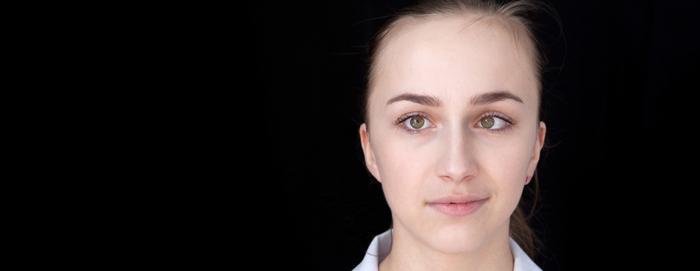Crossed Eye Treatment Treatment & Diagnostics in Karol Bagh, Delhi
Crossed Eye Treatment
Crossed eyes are also known as strabismus. Crossed eyes usually occur when an individual's eyes do not align and point in different directions. This condition is a result of weak muscles in one or both eyes. Thus, each eye will focus on different objects at the same time.
To know more, contact an ophthalmology doctor near you or visit an ophthalmology hospital in New Delhi.

What are the different types of crossed eyes?
The most common types of strabismus are as follows:
- Accommodative esotropia - This usually occurs in uncorrected farsightedness cases. The symptoms of accommodative esotropia are double vision, covering one eye while looking at a nearby object and head tilting. This is usually treated with the help of glasses along with a patch or surgery on one or both eyes.
- Intermittent exotropia - In this case, one eye concentrates on an object while the other eye points outward. Headache, difficulty in reading, double vision and eye strain are some of the symptoms of intermittent exotropia. It can be treated with glasses, patches, eye exercises and surgery on the muscles of the eye.
- Infantile esotropia - This condition is due to the inward turning of both eyes. Infantile esotropia can be treated with surgery on the muscles of the eyes to correct the alignment.
What are the symptoms of crossed eyes?
Some of the symptoms that are usually observed among children include:
- Tilting head to one side
- Eyes do not move together
- Inability to gauge the depth
- Unsymmetrical reflection point in each of the eye
- Squinting with one eye
What causes crossed eyes?
There are various reasons for having crossed eyes; in some cases, it can be due to untreated severe farsightedness. Additionally, head trauma can also cause crossed eyes as the trauma affects the portion that controls the eyes.
When do you need to see a doctor?
Early diagnosis and treatment of crossed eyes would help improve the chances of recovery. Thus, to lower your risk of vision loss, you should immediately consult an ophthalmologist.
Request an appointment at Apollo Spectra Hospitals, Karol Bagh, New Delhi.
Call 1860 500 2244 to book an appointment.
Who is at risk?
You are at a higher risk of developing crossed eyes if you have the following medical conditions:
- Brain tumor or any other brain disorder
- Brain surgery
- Stroke
- Vision loss
- Lazy eye
- Damaged retina
- Diabetes
What are the complications?
If crossed eyes are left untreated, then it can lead to some serious medical conditions. If the eyes are not aligned properly, then it may result in the following:
- Permanently poor vision
- Blurry vision
- Eye strain
- Headache
- Fatigue
- Poor 3-D vision
- Low self-esteem
- Double vision
How can we prevent crossed eyes?
Crossed eyes in an individual cannot be prevented; however, the complications can be avoided with early diagnosis and treatment.
What are the treatment options for crossed eyes?
There are several treatment options available for crossed eyes. Depending on the severity, type and cause of crossed eyes, your ophthalmologist would recommend options such as:
- Contact lens or eyeglasses to correct the untreated farsightedness
- Medications such as eye drops are recommended as an alternative to cover the better-seeing eye
- Surgery to realign the muscles of the eyes
- Patch for the better-seeing eye to strengthen it
Conclusion
Crossed eyes usually develop in babies; thus it is easier to treat when detected at an early stage. Crossed eyes lead to poor vision. However, younger children and adults can also experience crossed eyes due to medical conditions such as cerebral palsy and stroke. Crossed eyes are usually treated with surgery, corrective lenses or a combination of both treatment options.
The tests recommended for the diagnosis of crossed eyes are:
- Corneal light reflex test
- Visual acuity test
- Cover/uncover test
- Retina exam
Pencil pushups, brock string and barrel cards are some of the eye exercises that can help in managing crossed eyes.
They are classified as below:
- Esotropia (inward turn)
- Exotropia (outward turn)
- Hypertropia (upward turn)
- Hypotropia (downward turn)
Our Top Specialities
NOTICE BOARD
CONTACT US
CONTACT US
 Book Appointment
Book Appointment


.svg)
.svg)
.svg)
.svg)








